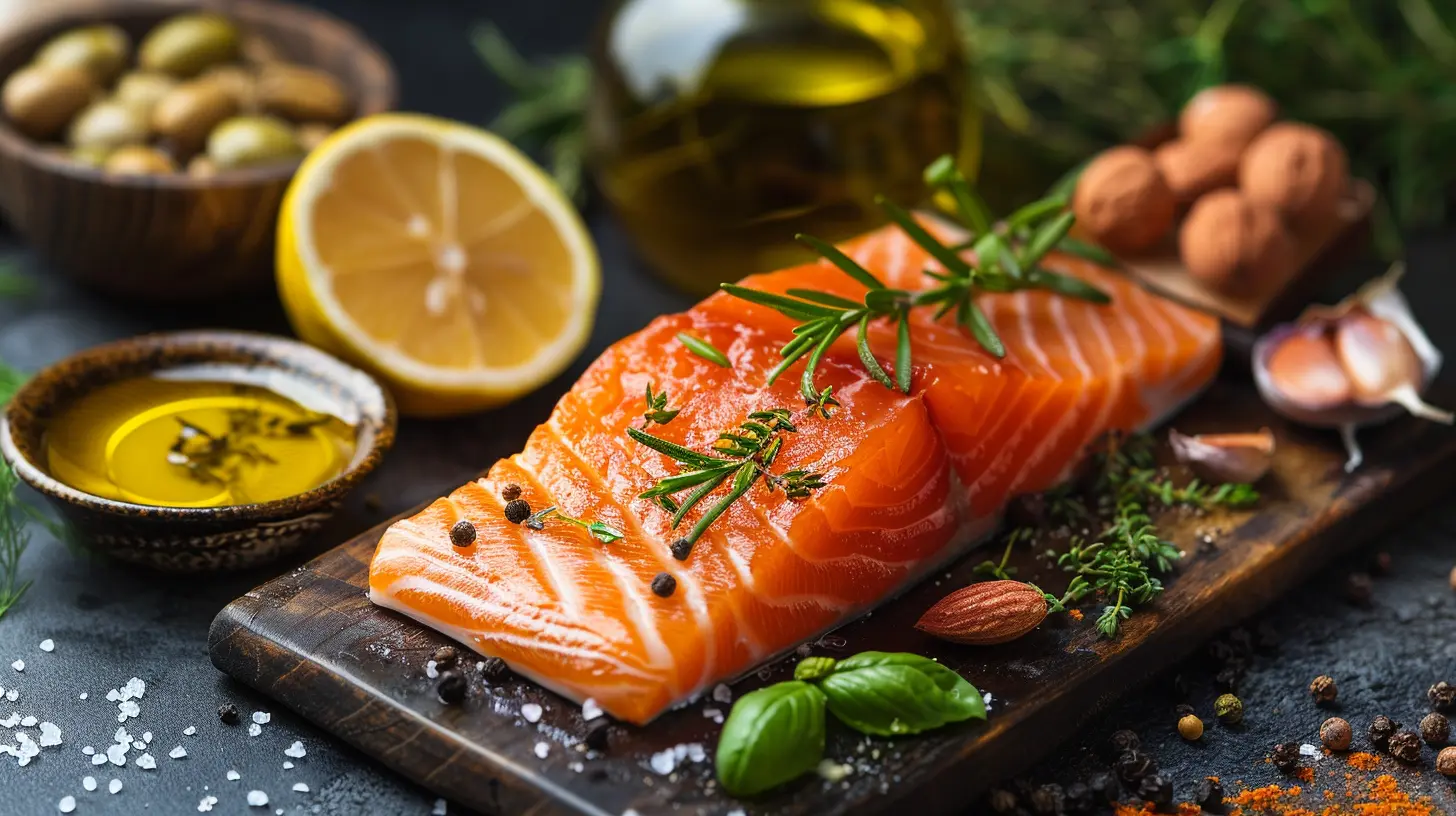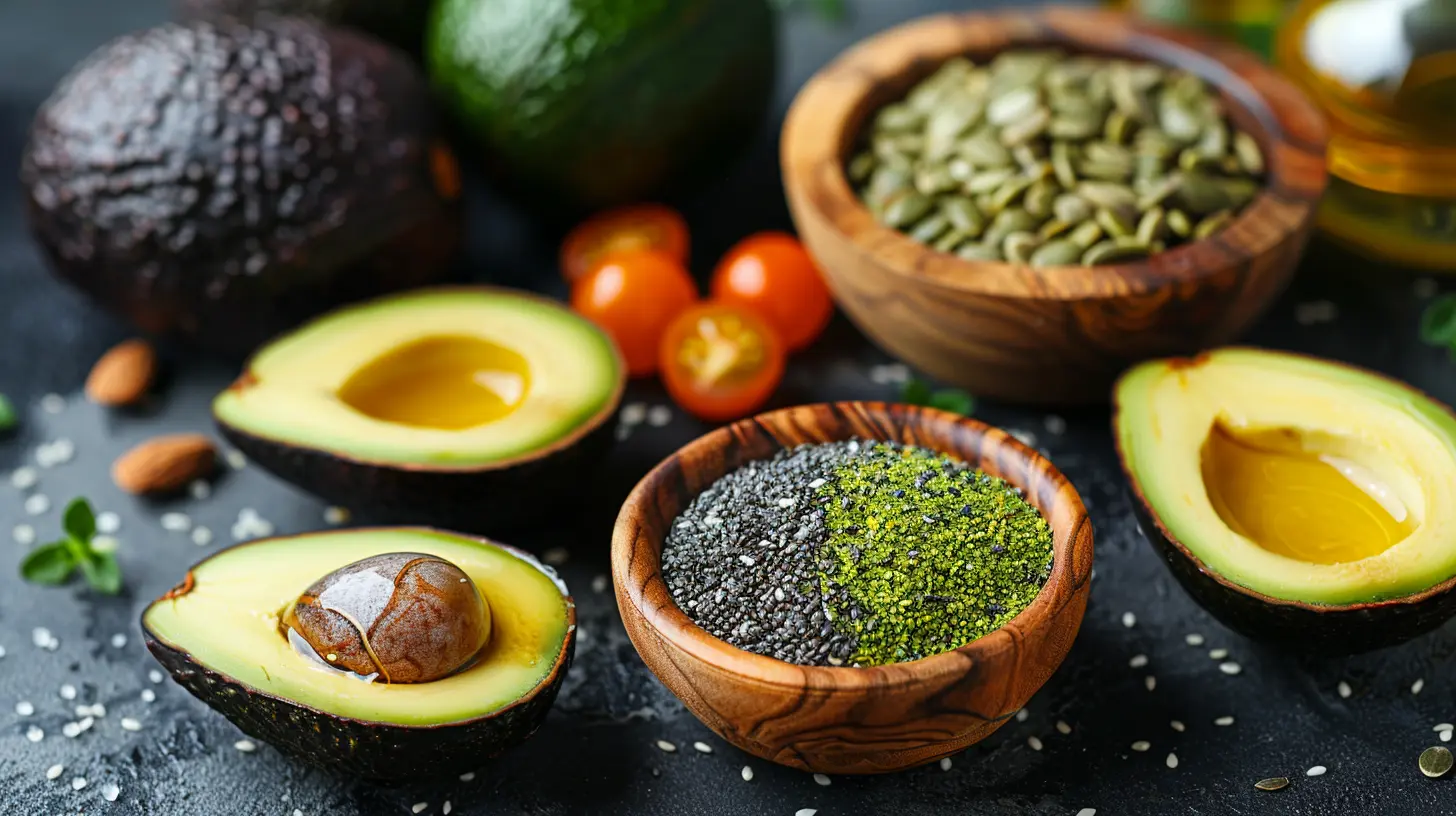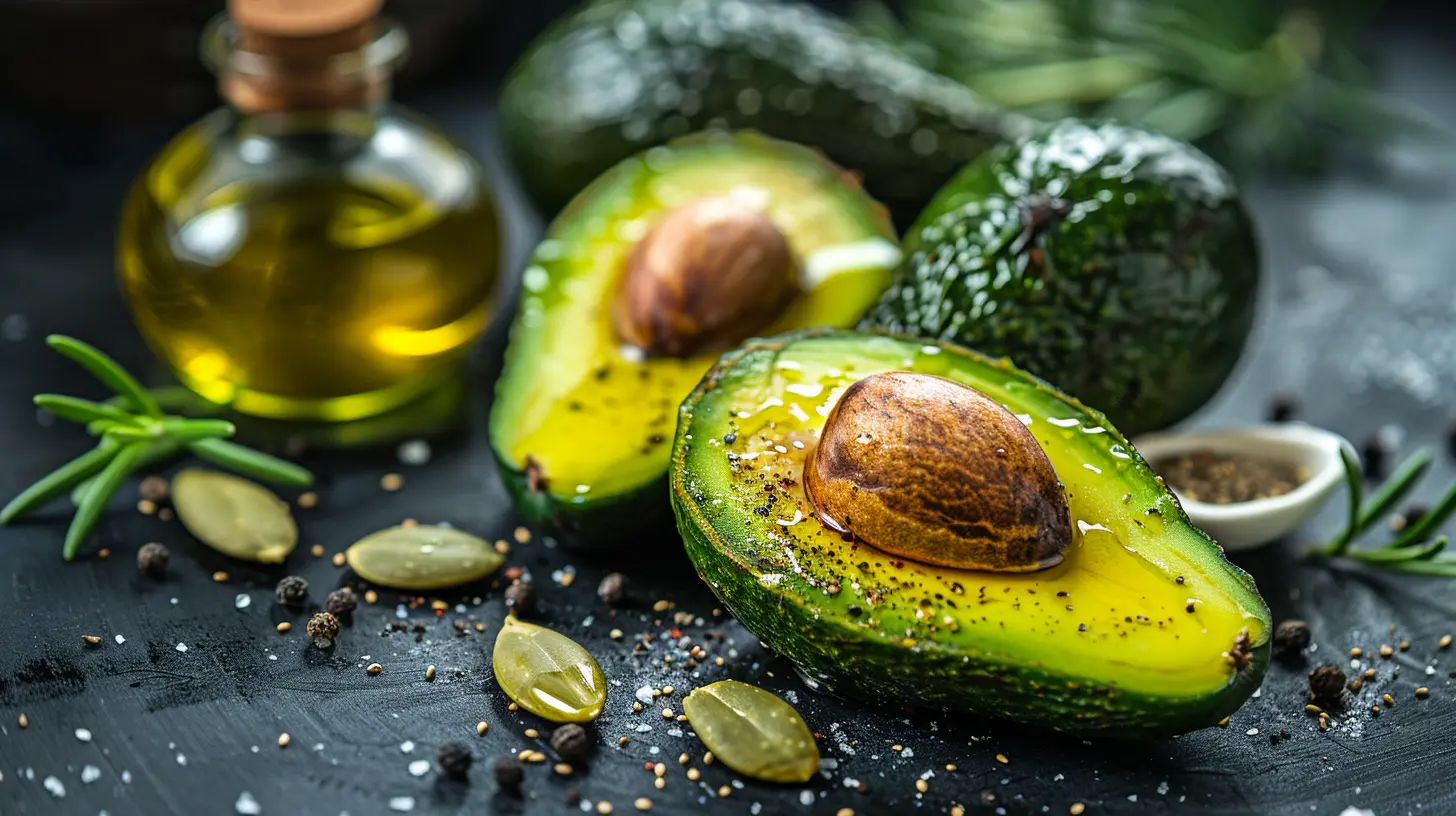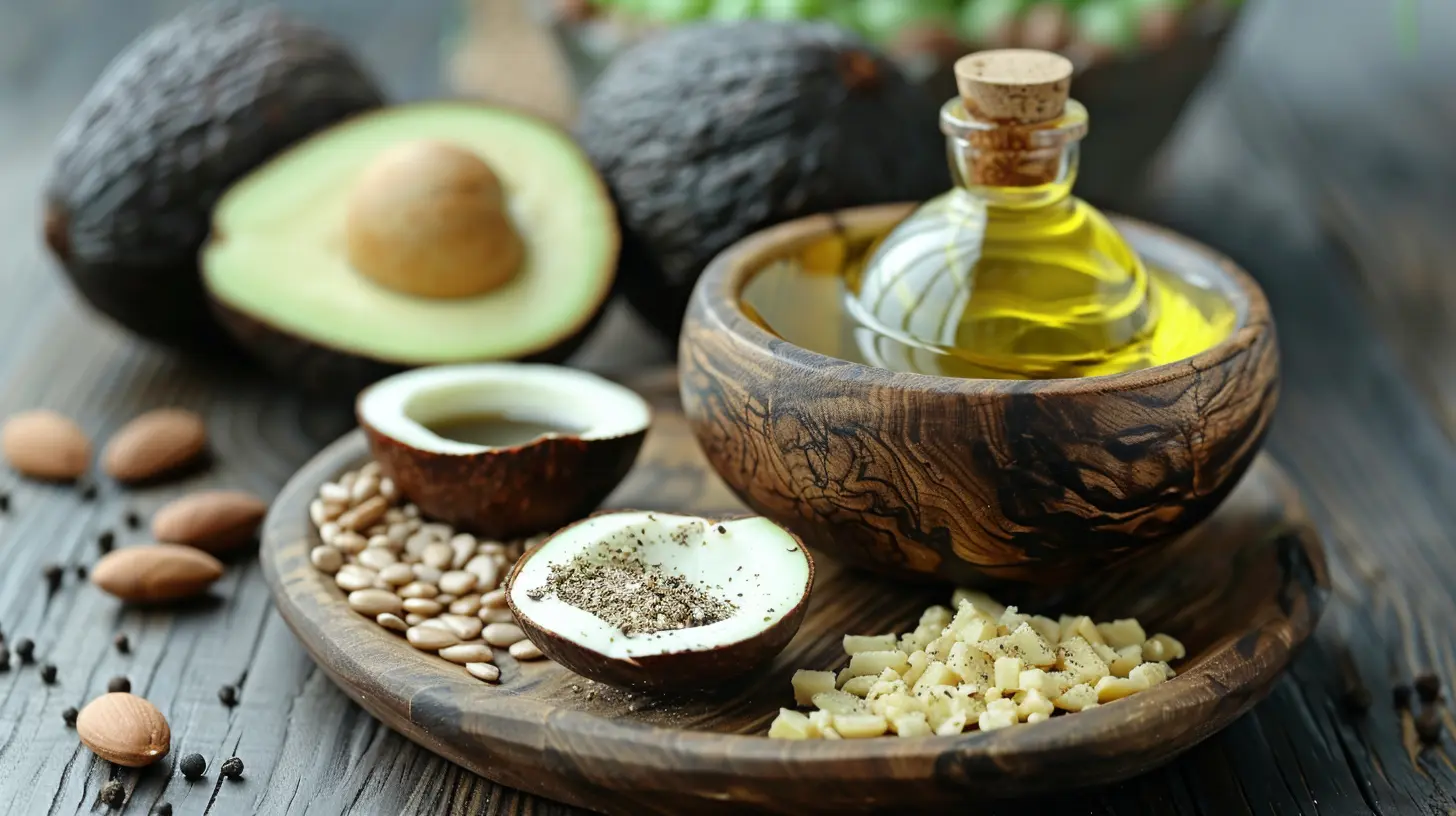Making the Shift to Healthier Fats in Your Daily Cooking
21 September 2025
When it comes to cooking, fat is often the unsung hero of flavor. Whether it’s the butter melting into your morning toast or the oil sizzling in your stir-fry, fats bring depth and richness to our meals. But let's be honest—there’s a lot of confusion around which fats are actually good for you. Should you ditch butter for coconut oil? Is olive oil really as magical as everyone says? And what about all those fancy seed oils popping up in the health aisle?
If you’ve been wondering how to make the switch to healthier fats in your daily cooking, you’re in the right place! This article will break it all down in a simple, friendly way, so you can make better choices without overcomplicating your meals. 
Why Healthy Fats Matter
First things first—fats aren’t bad. In fact, they’re essential! Your body needs fats to function properly. They help absorb vitamins, keep your brain sharp, support hormone production, and even make your skin glow.But here’s the catch: not all fats are created equal. Some fats promote heart health and reduce inflammation, while others contribute to weight gain and chronic diseases. The key is knowing which fats to embrace and which ones to limit. 
Understanding the Different Types of Fats
Before we dive into healthier swaps, let’s break down the main types of fats you’ll find in your diet.1. Healthy Fats (The Good Guys)
These are the fats your body loves! They provide energy, protect your heart, and even help reduce bad cholesterol.- Monounsaturated Fats – Found in olive oil, avocados, nuts, and seeds, these fats are great for heart health.
- Polyunsaturated Fats – Found in fatty fish (like salmon), walnuts, flaxseeds, and sunflower oil, these fats include essential omega-3 and omega-6 fatty acids.
- Omega-3 Fatty Acids – Known for their anti-inflammatory benefits, these fats are particularly important for brain function and heart health.
2. Unhealthy Fats (The Bad Guys)
These are the fats that can cause trouble when consumed in excess.- Saturated Fats – Common in butter, red meat, full-fat dairy, and tropical oils like coconut and palm oil. While small amounts are fine, too much can raise LDL (bad cholesterol) levels and increase heart disease risk.
- Trans Fats – Found in some fried foods, margarine, and processed snacks, these fats are the worst offenders. They increase inflammation and contribute to heart disease. 
Making the Shift: Healthier Fat Swaps for Everyday Cooking
Now that you know the difference between good and bad fats, let’s talk about practical ways to make healthier swaps in your kitchen.1. Ditch Vegetable Oils for Olive Oil
Many people cook with vegetable oils like soybean, corn, or sunflower oil, but these are often highly processed and high in omega-6 fatty acids, which can cause inflammation.👉 Swap these out for extra virgin olive oil, which is loaded with heart-friendly monounsaturated fats and antioxidants. It’s perfect for salad dressings, sautéing veggies, and even roasting.
2. Replace Butter with Avocado or Ghee
Love butter on your toast or in baking? While butter isn’t the worst option in moderation, you can make healthier choices.👉 Try mashed avocado as a spread—it’s creamy, rich, and packed with healthy fats.
👉 If you're looking for a butter substitute in cooking, go for ghee (clarified butter). It has the same delicious taste but without the milk solids, making it easier to digest.
3. Upgrade Your Frying Oil to Coconut or Avocado Oil
High-heat cooking requires an oil that won’t break down into harmful compounds when exposed to high temperatures.👉 Instead of using vegetable oil or margarine, opt for coconut oil (for a slightly sweet, tropical flavor) or avocado oil, which has a high smoke point and neutral taste.
4. Snack Smarter with Nuts & Seeds
Instead of reaching for chips or processed snacks, try incorporating more nuts and seeds into your diet.👉 Almonds, walnuts, chia seeds, and flaxseeds are powerhouses of healthy fats and make great additions to smoothies, yogurt, or oatmeal.
5. Cook More with Fatty Fish Instead of Red Meat
Red meat is fine in moderation, but too much saturated fat from processed meats can be harmful to your heart.👉 Aim to eat fatty fish like salmon, mackerel, or sardines at least twice a week. They’re an excellent source of omega-3s and make for a delicious, nutrient-dense meal. 
Small Steps, Big Impact
Switching to healthier fats doesn’t mean overhauling your entire diet overnight. Small swaps can make a significant difference over time.Here’s a simple one-week challenge to help you get started:
✅ Day 1 – Swap out butter for mashed avocado on toast.
✅ Day 2 – Cook with olive oil instead of vegetable oil.
✅ Day 3 – Add a handful of nuts or seeds to your breakfast.
✅ Day 4 – Use ghee instead of margarine in cooking.
✅ Day 5 – Eat a serving of fatty fish for dinner.
✅ Day 6 – Make a homemade salad dressing with olive oil and lemon juice.
✅ Day 7 – Try snacking on raw almonds instead of chips.
By the end of the week, you’ll notice how easy it is to make small but impactful changes!
Final Thoughts
At the end of the day, fats aren’t the enemy—bad choices are. By shifting to healthier fats, you’re not just improving your diet; you’re treating your body with the care it deserves.So next time you’re in the kitchen, remember this: a simple swap can lead to a healthier, happier you. Now, go ahead and drizzle that extra virgin olive oil on your salad with confidence!
all images in this post were generated using AI tools
Category:
Healthy FatsAuthor:

Sophia Wyatt
Discussion
rate this article
1 comments
Fenris Wright
Embrace healthy fats for tasty success!
October 2, 2025 at 3:35 AM

Sophia Wyatt
Absolutely! Embracing healthy fats not only enhances flavor but also supports overall wellness. Happy cooking!


